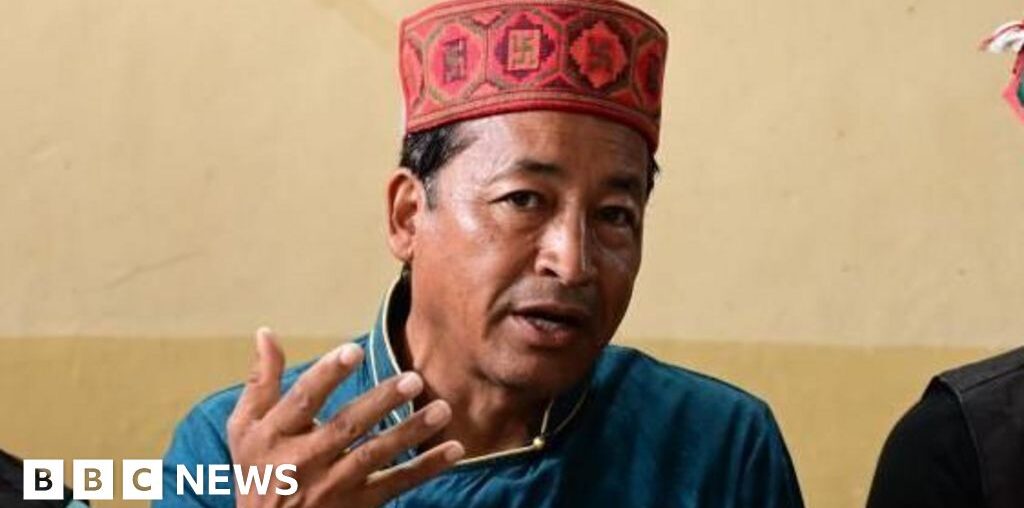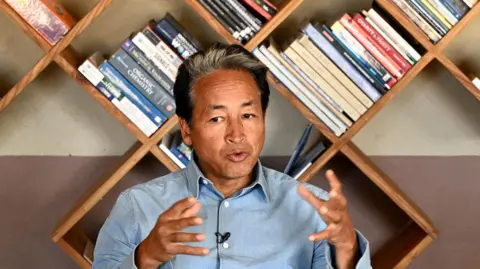 Getty Images
Getty ImagesAn Indian climate activist who ended a 16-day-long hunger strike this week says his fight to save the ecology of his hometown – an icy cold desert in the northernmost part of India – is far from over.
Sonam Wangchuk, 58, became a familiar name in India when Bollywood star Aamir Khan played a character inspired by him in the 2009 blockbuster 3 Idiots.
Mr Wangchuk has also had a long career as an engineer and innovator. But in recent months, he has made headlines for holding protests seeking more autonomy for people in his home region of Ladakh, a mountainous cold desert bordering Pakistan and China.
Ladakh was part of Indian-administered Kashmir until 2019, when Prime Minister Narenda Modi’s government removed the state’s special status and split it into two federally governed territories – Jammu and Kashmir, and Ladakh.
Earlier this month, assembly elections were held in Jammu and Kashmir for the first time since the abrogation. But Ladakh continues to be a federal territory without legislative powers.
People in Ladakh say this is unfair, and that they need their own representatives. They are also worried about the pace of infrastructural activities in the region, which they say is harming its fragile environment.
Before beginning his hunger strike, Mr Wangchuk and his supporters walked for hundreds of kilometres from Ladakh to reach capital Delhi. They argued that more autonomy to Ladakh – under a constitutional provision called the Sixth Schedule -would help prevent exploitation of natural resources.
Their march on foot came after months-long talks between locals in Ladakh and federal government officials failed.
At Delhi’s borders, the protesters were detained for hours after which Mr Wangchuk began his hunger strike. He ended it on Monday after the government promised that talks would resume soon.
With his protests and interviews, Mr Wangchuk has ensured that the demands of the people of Ladakh have remained part of mainstream media discourse in India for weeks now.
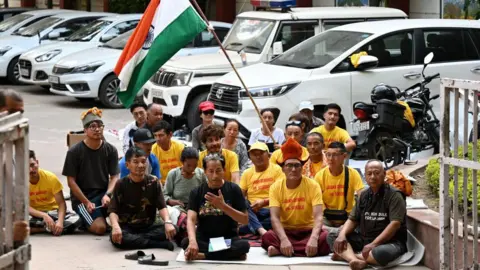 Getty Images
Getty ImagesMr Wangchuk has a long history of challenging the status quo.
As a child, he studied for three years in Srinagar city (then the capital of Jammu and Kashmir state) where lessons were taught in English, Urdu and Hindi. In an interview, he recalled being the “butt of jokes” in class.
“In Srinagar, I was a dumb boy from Ladakh who could not speak Hindi or English,” he said.
In the 1980s, his experiences led him to question the education system in Ladakh, which he said did not address local needs. He protested against the use of textbooks in English and Urdu in a region where most people spoke the Ladakhi language.
“All the textbooks, even in early primary classes, came from Delhi. The examples were of unfamiliar cultures and environments like ships, oceans, coconut trees and monsoon rains,” says a note on the website of a school co-founded by him. “These alien examples in alien languages only confused Ladakhi children.”
Since then, he has worked with local authorities and communities to ensure that the education system addresses the unique needs of children in Ladakh.
His innovations have also made news.
Mr Wangchuk studied mechanical engineering after a relative noticed his experiments with concave mirrors to brighten dark buildings and cook food.
In recent years, he has developed a low-cost mud house that maintains a temperature of 15C even in -15C conditions.
He has also designed an artificial spring in the shape of an ice stupa – a hemispherical structure common in Buddhist cultures – that stores downstream water for use during late spring when farmers need water.
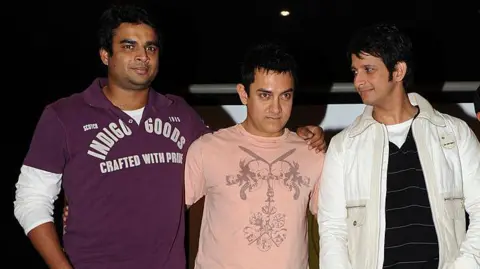 Getty Images
Getty ImagesEarlier this year, Mr Wangchuk sat on a 21-day protest in the freezing cold “to remind the government of its promises to safeguard Ladakh’s environment and tribal indigenous culture”.
He was joined by thousands who fasted with him and held demonstrations.
It was when those protests didn’t yield the desired results that Mr Wangchuk walked to Delhi.
In the capital, he has continued his demands for the sixth schedule in Ladakh – this provision, which has been implemented in India’s northeastern states, gives special powers to tribal populations to safeguard their interests in matters including natural resources and infrastructure. Ladakh has a majority tribal population.
“The sixth schedule gives locals not just a right but a responsibility to conserve their climate, forests, rivers and glaciers,” he told reporters.
Mr Wangchuk and his supporters say that the fragile Himalayan ecology is in danger in the absence of constitutional safeguards.
The concerns stem from the fact that the government has accelerated infrastructure development in border regions.
Ladakh is strategically significant for India as it shares borders with both China and Pakistan.
The federal government has sanctioned several highways, power projects and military-related infrastructure in Ladakh, which Mr Wangchuk says will harm the region, especially in the absence of consultation with local representatives.
“We don’t oppose development. We want sustainable growth,” he said.
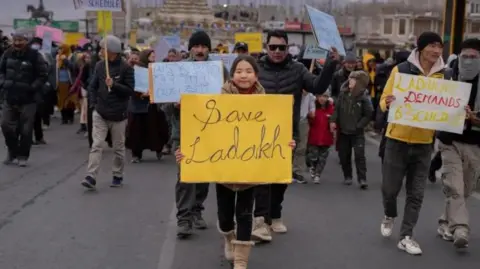 Special arrangement
Special arrangementMr Wangchuk and his supporters say that Ladakh’s ecology means that it can’t follow the development models of other Indian states. They say that people in cities are not mindful of the unique needs of Himalayan regions.
“You don’t get to see this in your cities but in Ladakh, there are proper winter, summer, and spring seasons, just like you read in books,” said Haji Mustafa, who had walked with Mr Wangchuk to Delhi.
Protesters have also complained about locals not benefiting from the projects in Ladakh.
“Our natural resources are getting exploited. Unemployment is very high. Local businessmen are unhappy. So, who is this development for?” Mr Mustafa asked.
The BBC has sent questions to Tashi Gyalson, who heads the Ladakh Autonomous Hill Development Council.
In the meantime, protesters say they will continue their fight until they have a say in what happens in Ladakh.
Earlier this week, as the government agreed to resume talks, Mr Wangchuk expressed hope that a solution would emerge soon.
“I hope the talks will be held in mutual trust and will result in a happy ending for all,” he said. “And that I will not have to sit on fast again or march 1,000km to the capital.”
Follow BBC News India on Instagram, YouTube, Twitter, and Facebook
